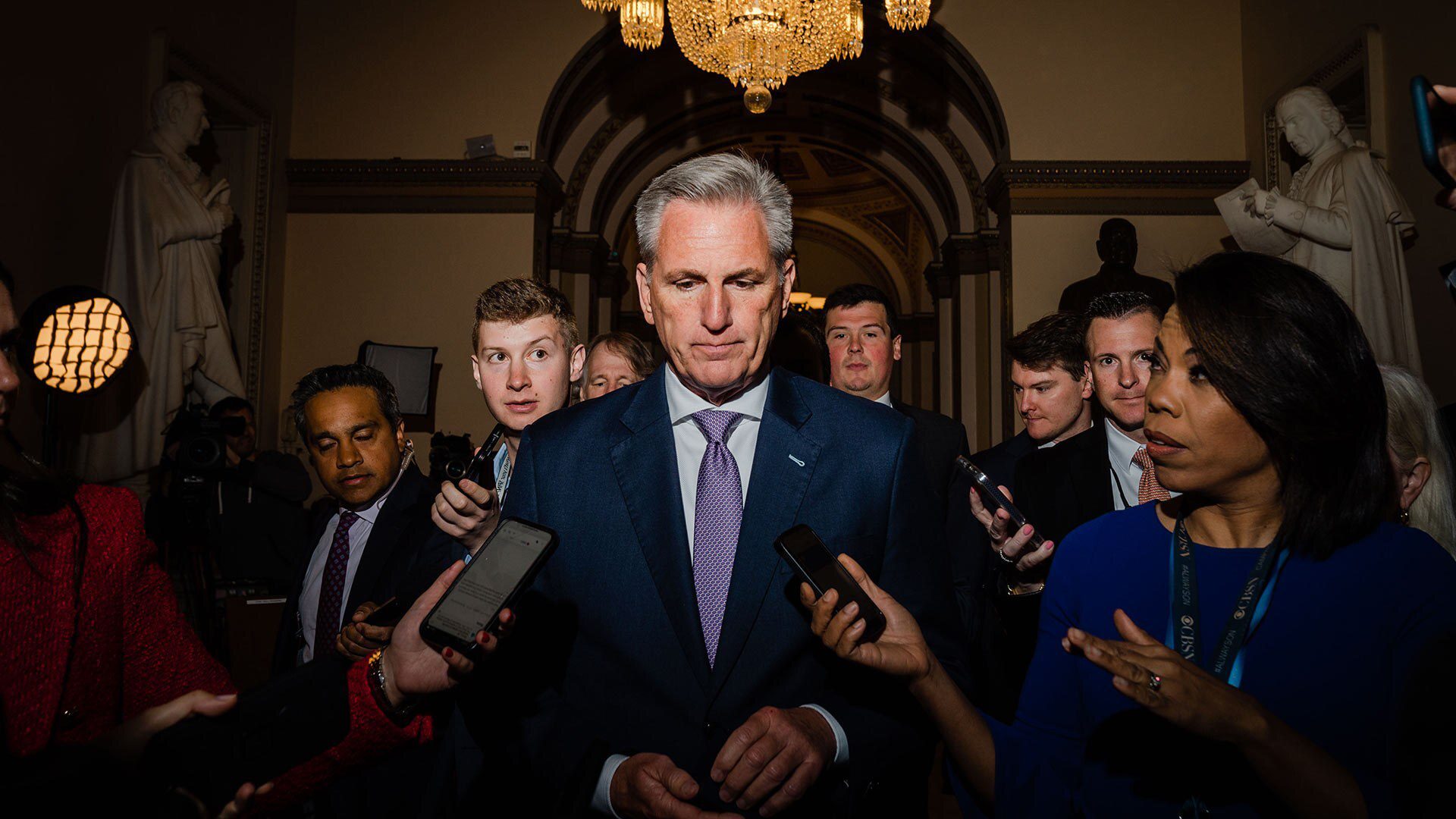- May 04, 2023
- By Chris Carroll
A showdown over the nation’s $31 trillion debt—with Democrats rolling out a long-shot plan to bypass the Republican majority in the House of Representatives, and Republicans aiming to bargain with Joe Biden over their spending-cut priorities—must end in a deal to allow the U.S. government to borrow more money, according to a University of Maryland finance expert.
With the country set to default on its bills at the beginning of June, the alternative is global financial chaos hitting regular Americans and big firms alike, said Michael Faulkender, Dean’s Professor of Finance who served as assistant secretary of the treasury for economic policy during the Trump administration in an interview with Maryland Today.
While both parties want to raise the debt ceiling, the agreement seems to end there; Faulkender talked about the risks involved, and the utility in having a debt ceiling to force hard decisions about spending.
What happened this week?
Based upon the tax filings that came in around April 15, the treasury secretary (Monday) sent a letter to Congress that says, “We're going run out money around June 1st, so Congress, you need to extend the debt ceiling by June 1st. And now Congress has three options: No. 1, immediately balance the budget. Cut the budget by $1.4 trillion right now. That is not happening—it would take multiple years to transition the budget into balance. No. 2 is you could default. That would send financial markets into a tailspin; we would most likely lose our status as the world's reserve currency, and it would be a financial debacle. And No. 3, Congress can extend the debt ceiling. They can authorize Treasury to have more than the current $31.4 trillion in total debt. That absolutely has to happen.
What if it doesn’t? Would be the societal consequences of this “debacle”?
Markets would crash. Retirement account values would go way down. Borrowing costs for the federal government would go way up. Interest rates would rise significantly. There'd probably be significant layoffs. We'd go into a recession.
So it’s necessary, but how do you do that? More than half the time in the last fifty-ish years of extending the debt ceiling, it has been accompanied by other things: spending cuts, budget reform, etc. A little less than half the time, it has been a clean debt ceiling—doing nothing but raising the debt ceiling.
Is that what the Biden administration and congressional Democrats were hoping for, rather than bargaining with Republicans?
I think the president and Senate Majority Leader (Charles) Schumer did not expect Speaker (Kevin) McCarthy to put together a majority in the House to extend the debt ceiling. They were counting on the 15 votes it took for him to become speaker to mean there was disarray and a lack of leadership, and if they stood their ground, they could get a clean debt ceiling. They’re now retooling because I don’t think they expected last week’s outcome, where McCarthy and his leadership team were able to convince people who’d never voted for debt ceiling increase before to go along. And all of the sudden, the president has invited the four top congressional leaders to the White House next week for discussions.
What do you expect there?
I think that Speaker McCarthy and Minority Leader (Mitch) McConnell are going to make clear that in order to get votes, there’s going have to be a deal about spending reductions and that there will be a negotiated outcome. Because if you look at the polls, … among Americans who want the debt ceiling increased, a strong majority want it to come with budget cuts.
What are Republicans aiming for?
The biggest spending cut is to take non-defense discretionary spending back to 2022 levels and then have it only grow 1% per year. That's a couple trillion off the baseline over the next 10 years. It also rescinds some of the unspent COVID money. It also denies the administration the ability to unilaterally cancel student loan debt.
Given the regular showdowns, do we need a debt ceiling law?
The original reason is that prior to World War I, Congress would have to approve each debt issuance. At the onset of the war, they said, “No, we'll just set a limit because there’ll just be too many of these spending bills too often.” And so that was the shift. Are there other ways we could do it? There are proposals that would force Congress to reauthorize mandatory spending at regular intervals.
One of my jobs at Treasury was chairing the working group that wrote the annual trustees reports for Social Security and Medicare. Fundamentally the issue is that people are living longer and are not having enough children to replace the population in this country. The program is unsustainable as currently constructed, and there is no mechanism to force Congress to confront that fact. At least the debt ceiling makes Congress periodically acknowledge we have mandatory spending that is unsustainable.
Topics
Research